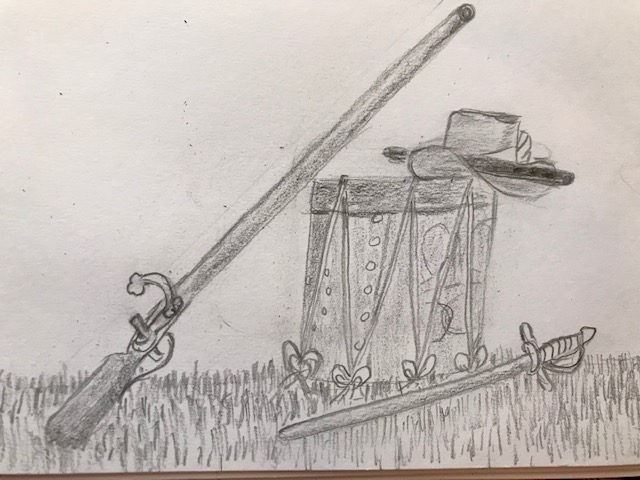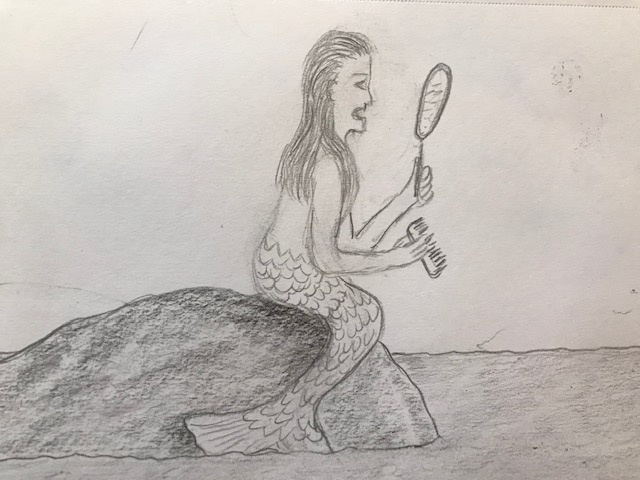 Do you sing in the shower? Or belt out songs to the accompaniment of the Car Radio as you drive down the motorway? I have always sung BUT to myself. My singing is not for public consumption. I learned very early on in childhood that adults did not like my efforts, labelling them as “flat” and suggesting that I was “tone deaf”. By the time I reached secondary school my default reaction to any singing was to mouth the words soundlessly. And when the Music Teacher pressed a note on the piano and demanded that I sing “a note higher” I used to burst into tears! Yet I recall so many of the songs that we learnt at school. I can and do sing them today, probably still off key. Does it matter? Dr Michael Mosley, of the BBC’s “Just one thing to improve your health. . .” Series says that “singing at the top of your voice has a unique mood-lifting ability and that singing can produce similar effects to cannabis.” (click here) On the podcast, Dr Mosley speaks to Dr Daisy Fancourt to find out about her research on revealing how singing can boost your immune system and how it could help treat chronic pain. Wow! Who knew?
Do you sing in the shower? Or belt out songs to the accompaniment of the Car Radio as you drive down the motorway? I have always sung BUT to myself. My singing is not for public consumption. I learned very early on in childhood that adults did not like my efforts, labelling them as “flat” and suggesting that I was “tone deaf”. By the time I reached secondary school my default reaction to any singing was to mouth the words soundlessly. And when the Music Teacher pressed a note on the piano and demanded that I sing “a note higher” I used to burst into tears! Yet I recall so many of the songs that we learnt at school. I can and do sing them today, probably still off key. Does it matter? Dr Michael Mosley, of the BBC’s “Just one thing to improve your health. . .” Series says that “singing at the top of your voice has a unique mood-lifting ability and that singing can produce similar effects to cannabis.” (click here) On the podcast, Dr Mosley speaks to Dr Daisy Fancourt to find out about her research on revealing how singing can boost your immune system and how it could help treat chronic pain. Wow! Who knew?
Thinking about singing led me to think about the songs that I remember. Whatever made my teacher in the infants choose, “Oh soldier, soldier, won’t you marry me”? Each time he is asked the canny soldier claims that he has “no coat, (hat, boots) to put on. “Oh soldier, soldier, won’t you marry me? With your musket, fife, and drum? Oh no, sweet maid, I cannot marry thee For I have no coat to put on” So the lassie gives him each item from her grandfather’s chest only to be finally rejected when the soldier replies “ . . . Oh no sweet maid I cannot marry thee with a wife and a child of my own”. We were five! Singing about betrayal in love!
 Then there was Junior School and another song about thwarted love. “Early one morning just as the sun was rising I heard a maiden sing in the valley below. Oh don’t deceive me. Oh never leave me how could you use a poor maiden so?” And there was the tragic tale of the ship doomed to sink after the mariners spotted a mermaid. “One Friday morn when we set sail And our ship not far from land, We there did espy a fair pretty maid, With a comb and a glass in her hand, her hand, her hand, With a comb and a glass in her hand. While the raging seas did roar, And the stormy winds did blow, And we jolly sailor boys were up, up aloft, And the land lubbers lying down below, below, below. Then up spoke the captain of our gallant ship, Who at once did our peril see, ‘I have married a wife in fair London town, And this night she a widow will be, will be, will be, And this night she a widow will be. . .”
Then there was Junior School and another song about thwarted love. “Early one morning just as the sun was rising I heard a maiden sing in the valley below. Oh don’t deceive me. Oh never leave me how could you use a poor maiden so?” And there was the tragic tale of the ship doomed to sink after the mariners spotted a mermaid. “One Friday morn when we set sail And our ship not far from land, We there did espy a fair pretty maid, With a comb and a glass in her hand, her hand, her hand, With a comb and a glass in her hand. While the raging seas did roar, And the stormy winds did blow, And we jolly sailor boys were up, up aloft, And the land lubbers lying down below, below, below. Then up spoke the captain of our gallant ship, Who at once did our peril see, ‘I have married a wife in fair London town, And this night she a widow will be, will be, will be, And this night she a widow will be. . .”
I realise now that what we learnt were folk songs and I do not recall being bothered at the time about the deeper implications of the words. And when I belt out the words now as I do the washing up, or iron my sheets, snippets of the past pop back into my mind. Elusive glimpses of life in the classroom many years ago. And I am heartened by Dr Mosley’s claim that singing will improve my health. You don’t have to listen!
 Follow
Follow
I know the first two songs but not the last!
Thank you for your comment. I have emailed you a link to a video of a lady singing ‘The Mermaid’
We definitely sang the first two at primary school too, although I’m quite a lot younger it was obviously still part of the curriculum. Like you say I think more because they’re traditional British folk songs, than for the lyrics. Now the songs are typically more of a modern collection. Not necessarily better, but different.
You sing your heart out! I sang with a community group and the premise was that the classes were for anyone, that anyone at all can sing. There were definitely all abilities and ranges. It was good fun.
I agree, singing is fun.